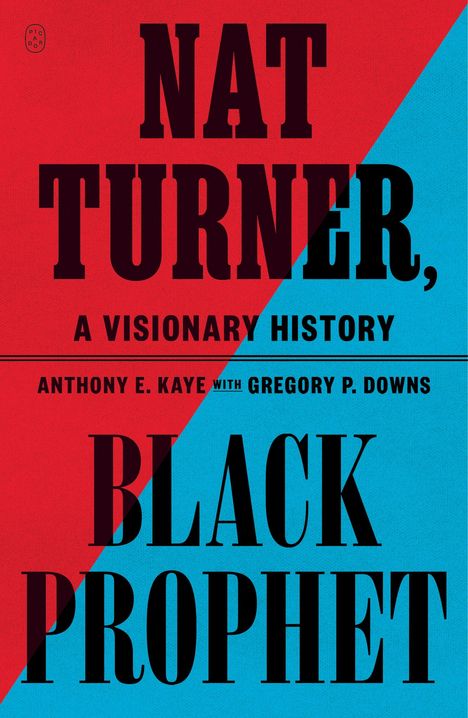Anthony E. Kaye: Nat Turner, Black Prophet, Kartoniert / Broschiert
Nat Turner, Black Prophet
(soweit verfügbar beim Lieferanten)
- Verlag:
- St. Martins Press, 08/2025
- Einband:
- Kartoniert / Broschiert
- Sprache:
- Englisch
- ISBN-13:
- 9781250390561
- Artikelnummer:
- 11997266
- Umfang:
- 370 Seiten
- Gewicht:
- 454 g
- Maße:
- 210 x 137 mm
- Stärke:
- 25 mm
- Erscheinungstermin:
- 12.8.2025
- Serie:
- Picador
- Hinweis
-
Achtung: Artikel ist nicht in deutscher Sprache!
Weitere Ausgaben von Nat Turner, Black Prophet |
Preis |
|---|
Klappentext
"Stellar . . . Spectacular . . . [A] heartfelt, painstaking account." -Nell Irvin Painter, The Washington Post
"An extraordinary collaboration . . . A profound achievement . . . Downs is a superb, even lyrical writer." -David W. Blight, Los Angeles Times
A Times Literary Supplement Book of the Year | One of Literary Hub's 50 Best Nonfiction Books of the Year
A bold reinterpretation of the causes and legacy of Nat Turner's rebellion-and the new definitive account.
In August 1831, a group of enslaved people in Southampton County, Virginia, rose up to fight for their freedom. They attacked the plantations on which their enslavers lived and attempted to march on the county seat of Jerusalem, from which they planned to launch an uprising across the South. After the rebellion was suppressed, well over a hundred people, Black and white, lay dead or were hanged. As news of the revolt spread, it became apparent that it was the idea of a single man: Nat Turner. An enslaved preacher, he was as enigmatic as he was brilliant. He was also something more-a prophet, one who claimed to have received visions from the Spirit urging him to act.
Nat Turner, Black Prophet is the fullest recounting to date of Turner's uprising, and the first that refuses to tame or overlook his divine visions. Instead, it takes those visions seriously, tracing their emergence from the world of nineteenth-century Methodism, with its revivals, camp meetings, interracial churches, and Black preachers. The rebellion and its aftermath would hasten the end of this world, as Southern states further restricted the personal freedoms of the enslaved, even as the ongoing threat of revolt shaped the country's politics. With this work of narrative history, the late historian Anthony E. Kaye and his collaborator Gregory P. Downs have given us a new understanding of one of the nineteenth century's most decisive events.


